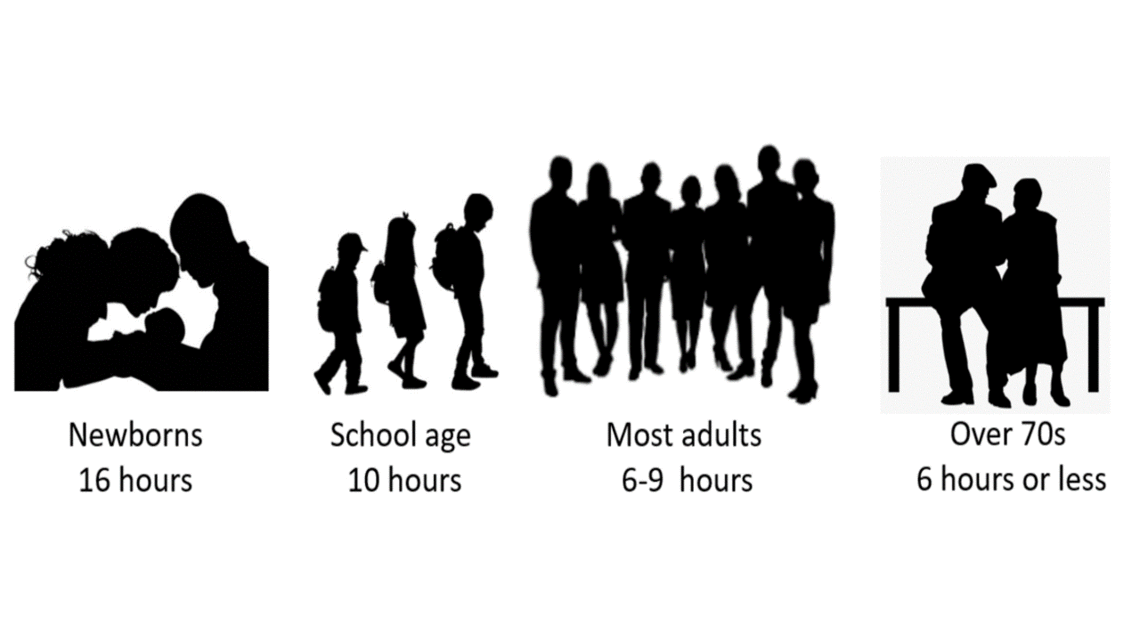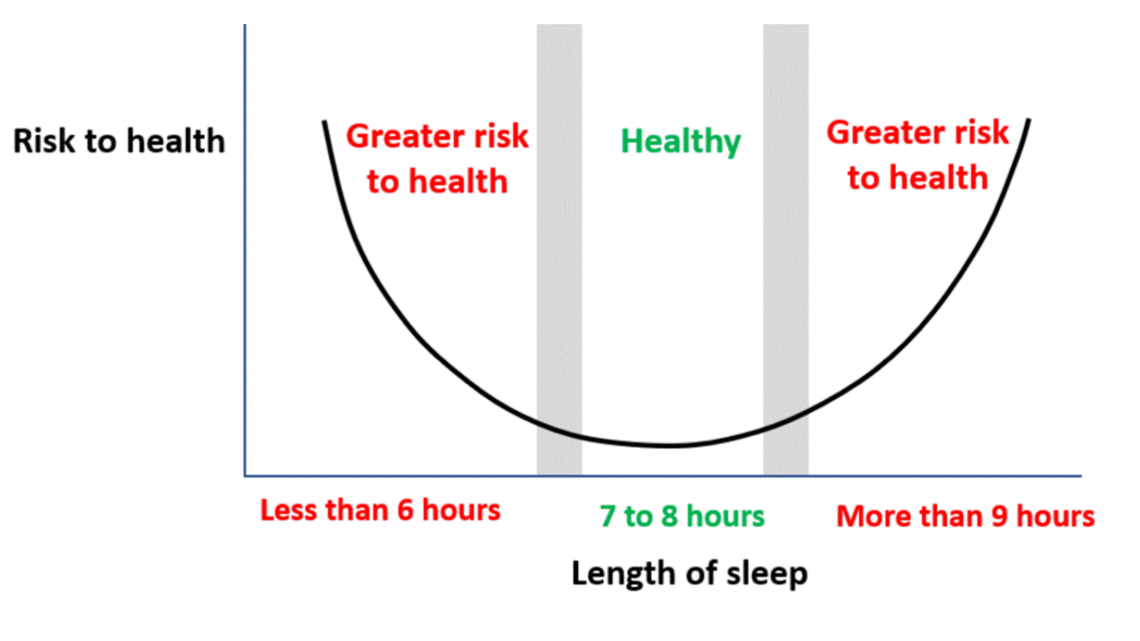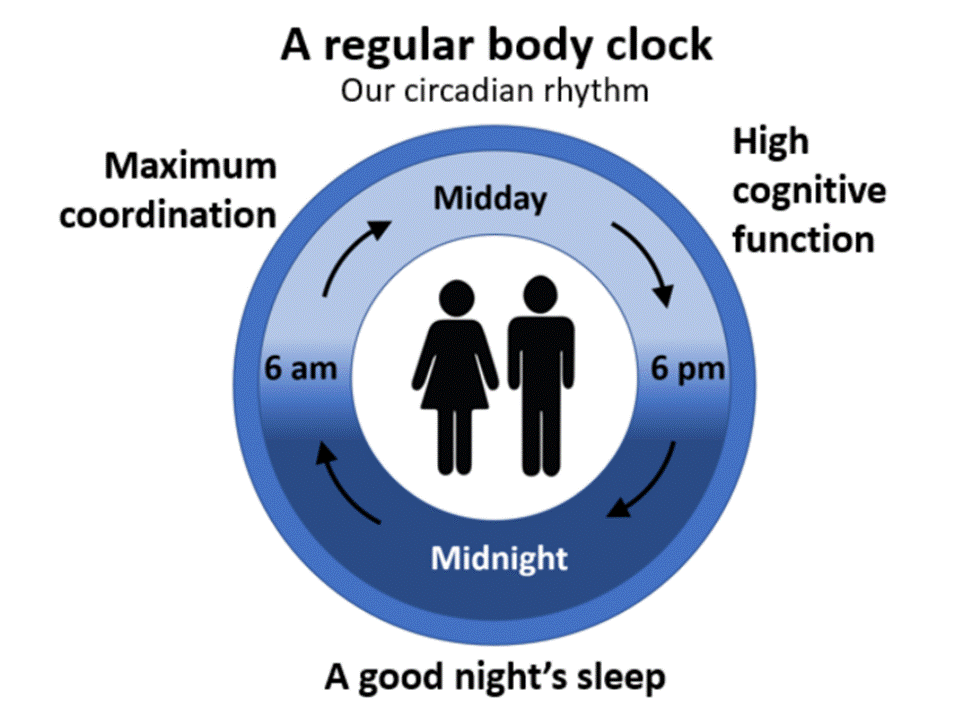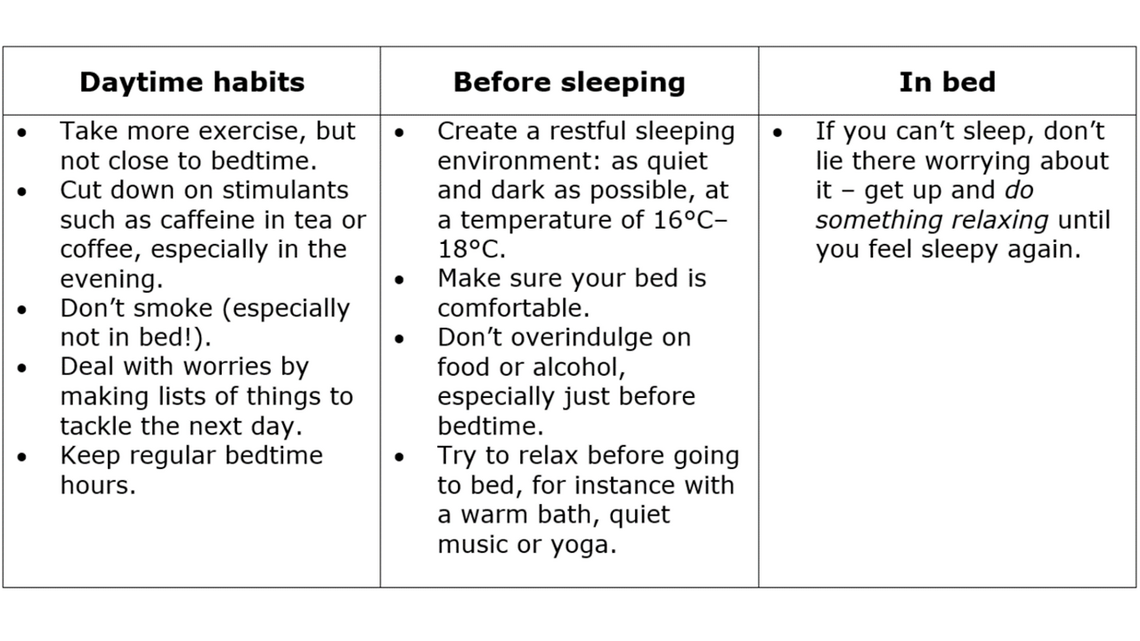How important is sleep for our mental and physical health? Could lack of sleep even lead to dementia? What can we do to get a good night's sleep?
|
‘A good laugh and a long sleep are the best cures in the doctor’s book.’ Irish proverb |
- Is sleep important for our health?
- Sleep and our immune system
- Are shift workers at particular risk?
- How much sleep do we need?
- Some advice for a better night’s sleep
- Tackling insomnia
- Snoring and allergies
- Conclusions
Is sleep important for our health?
In 2011 the Mental Health Foundation launched its Sleep Matters report to highlight the importance of sleep in maintaining good mental health.
Sleep is also important for our physical health. The NHS advises that a solid night’s sleep is essential for a long and healthy life and that regular poor sleep puts us at increased risk of serious medical conditions, including obesity, heart disease, high blood pressure and diabetes. Poor sleep can also shorten our life expectancy.
Lack of sleep may also increase the risk of Alzheimer’s. A review of published research in 2017 in the SLEEP journal concluded that approximately 15% of Alzheimer’s cases in the population may be attributed to sleep problems.
Whether or not all the health benefits suggested for sleep are proven, a good night's sleep seems to be something that helps us stay healthy.
Sleep and our immune system
A number of studies have suggested that sleep is important for our immune system. For example:
- In 2015, an opinion article in Trends in Neurosciences suggested one possible reason for this is that sleep may help our immune system ‘remember’ the threats it is protecting our body against.
- Research published in 2018 suggests adequate sleep can also help our body’s T cells fight infections by increasing their ability to attach to their targets. T cells are a type of immune cell that fight against viruses such as flu and HIV as well as against cancer cells.
- A 2019 article explained that there are two-way connections between the central nervous system, sleep and the immune system. This helps to explain why sleep enhances our immune defences and suggests that it might help our immune system anticipate injury and infectious threats.
Are shift workers at particular risk?
Shift workers – who make up at least 15% of the current global workforce – may be at particular risk of sleep-related health issues. Shift working can disrupt our internal body clock (the circadian rhythm), which helps us sleep when it is dark and wakes us up when it is light.
A 2016 review of published research concluded that ‘It is likely that shift workers show an increased risk of viral infections [by compromising] the innate immune response’.
How much sleep do we need?
How much sleep we need depends partly on our age and partly on our individual needs. The NHS gives these figures for how much sleep we need at various stages of our lives:

A review of published research in 2011 found that too little sleep (e.g. less than six hours per night) and too much sleep (e.g. more than nine hours per night) were both associated with greater risk of adverse health outcomes. Loss of sleep can increase the risk of developing various cancers and may also increase the risk of digestive disorders and mental illness.

Some advice for a better night’s sleep
The Sleep Council, a UK-based NGO that advises on sleep issues and promotes healthy sleep habits, offers these top ten tips for improving your sleep:
The Sleep Council also offers a range of other advice and support, and the Mental Health Foundation publishes a downloadable guide to How to Sleep Better.
Most of us spend about a third of our lives in bed, so a comfortable bed is a sensible investment. The Independent newspaper has advice on how to choose the right mattress.
Tackling insomnia
The NHS advises that persistent insomnia (difficulty falling asleep and remaining asleep) can affect personal lives and performance at work, and can delay recovery after an illness. Insomnia can also be a factor in depression.
As we advise elsewhere on Age Watch, to improve our prospects of a good night’s sleep we should:
- Reinforce our natural body clock by getting enough light during the day and then avoiding light when sleeping at night (especially ‘blue light’ from digital devices).
- Make sure any physical or mental health condition that keeps us awake at night is treated and that the effects of the drug last all night long.
- Only use sleeping tablets if they are necessary.
- Consider alternative self-help options, including Cognitive Behavioural Therapy (CBT) and meditation.
- Take some form of exercise every day.
Snoring and allergies
If snoring is a problem, the British Snoring & Sleep Apnoea Association can provide information and resources to help you overcome it.
Allergy UK can provide information about beds and bedrooms if allergic conditions such as allergic rhinitis (hay fever) and asthma are an issue.
And The Sleep Council provides advice on beds and bedrooms from an allergy perspective.
Conclusions
- Sleep is important for both our physical and our mental health.
- We need enough sleep to ‘feel refreshed and to function effectively’ – how much sleep we need will vary from one person to another.
- If we have problems sleeping, we need to tackle the causes rather than the symptoms. For instance, we may need to reinforce our natural body clock by getting medical help to tackle underlying mental or physical health problems.
- Reduce stress and anxiety through exercise or relaxation.
- Make sure that we have a comfortable bed and a restful environment to sleep in.
Reviewed and updated September 2020. Next review date August 2024.
__________________________
Other relevant articles on the Age Watch website:
- Mind: Sleep
- Mind: How important is our body clock?
- Mind: Cognitive Behavioural Therapy (CBT)
- Mind: How much sleep do we really need?
- Fitness: Yoga
- Fitness: Keeping fit–Why bother?


